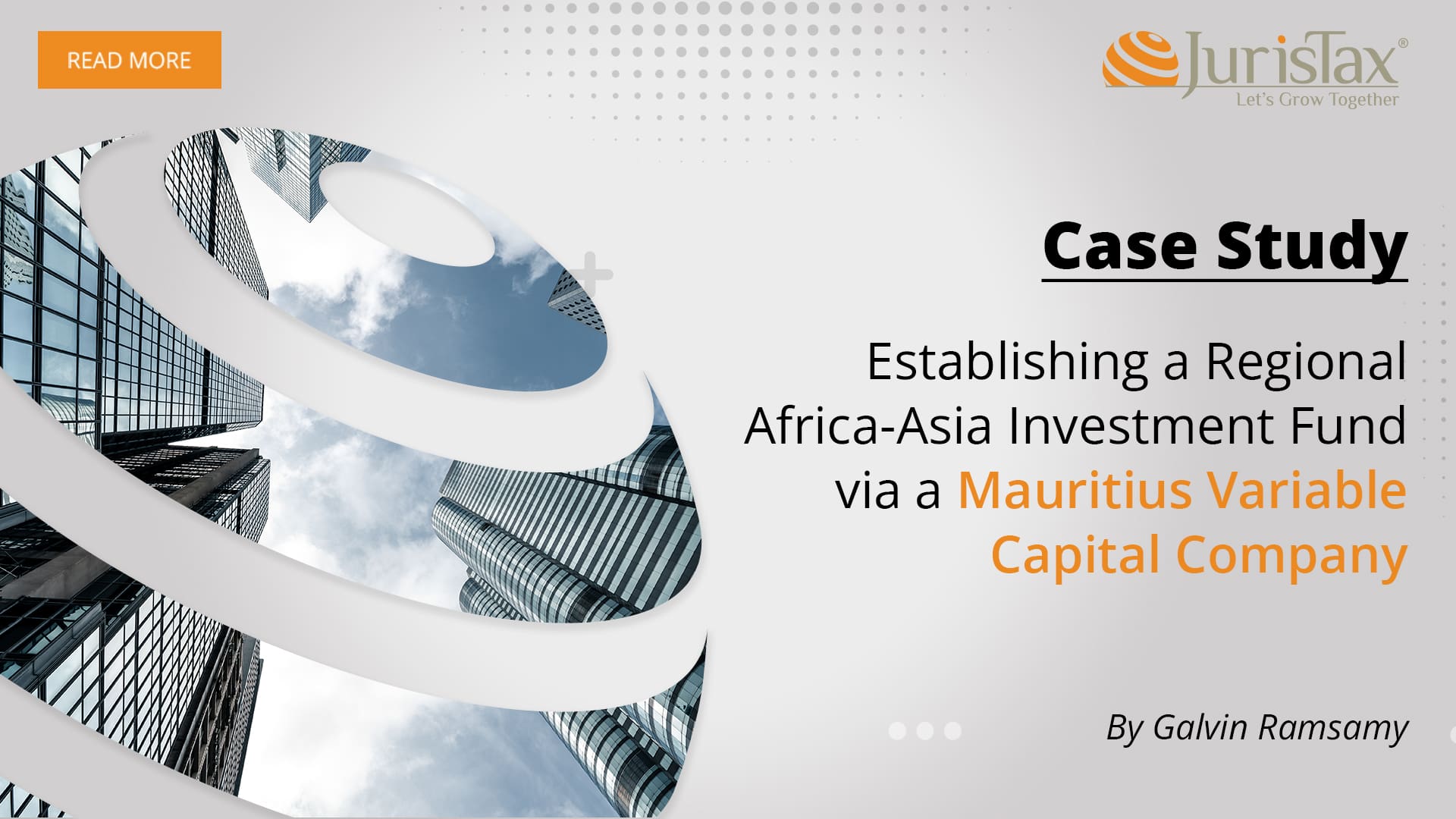Case Study: Establishing a Regional Africa-Asia Investment Fund
via a Mauritius Variable Capital Company

Why Global Investors, Corporate Groups, and Advisors Are Choosing the UAE for Structuring and Growth
Background:
A UAE-based asset management firm, which we shall name Quattro Capital, with institutional clients across the Middle East, was seeking a tax-efficient, cost-effective, and well-regulated jurisdiction to launch a multi-strategy investment fund focused on African infrastructure, Southeast Asian startups, and ESG-focused assets.
The firm evaluated three jurisdictions for establishing a fund structure capable of housing multiple strategies:
- Mauritius
- Singapore
- Cayman Islands
After comprehensive due diligence and consultations, the Mauritius VCC was selected.
Why the Mauritius VCC Was Chosen?
1. Structuring Flexibility
- The Mauritius VCC allows for segregated sub-funds and share classes under a single legal entity.
- The Mauritius VCC can have a sub-fund operating under a Collective Investment Scheme (i.e. open-ended Fund) and another sub-fund operating as a Close Ended Fund.
- Unlike traditional fund structures, this reduces setup and ongoing costs while enabling clear asset and liability ring-fencing per sub-fund. For example, if one of the sub-funds encounters any difficulty, the assets of other sub-funds remain shielded.
- In comparison, Singapore’s VCC offers similar features but at significantly higher setup, licensing and maintenance costs.
2. Substance & Tax Efficiency
- Mauritius offers access to a wide tax treaty network, including with India, UAE, France, and South Africa—key target markets for Quattro Capital.
- It has no capital gains tax, and the VCC can benefit from the partial exemption regime (80% exemption on certain income streams).
- One of the other jurisdictions lacks tax treaties and now faces increasing transparency scrutiny under OECD and EU frameworks.
3. Regulatory Credibility
- Mauritius is compliant with OECD, FATF, and EU standards.
- The Financial Services Commission (FSC) ensures pragmatic yet robust fund regulation, making it ideal for institutional and HNWI capital pools.
- Unlike some offshore jurisdictions, Mauritius provides a regulated, substance-based framework to meet investor expectations.
4. Africa-Asia Gateway
- Mauritius is strategically located and positioned as the bridge between African and Asian capital markets.
- VCCs can appoint local or international fund managers, custodians, and administrators, enhancing operational flexibility.
Implementation Strategy
- VCC Structure: Master VCC entity registered with FSC
- Three sub-funds: InfraBridge Africa (Infrastructure Fund) VentureAsia (Startup Fund for Southeast Asia) GreenYield (ESG-focused Equities)
- Licensing: Global Business Licence (GBL) + CIS Manager Approved as a Collective Investment Scheme (CIS) with professional investor eligibility
- Substance: Board of qualified resident directors, local compliance officer, audited financials, fund administration, investors onboarding & relationship management and physical office support provided by JurisTax
Outcome
Within 12 months:
- Assets under management reached USD 110 million.
- Attracted LPs from UAE, South Africa, and Singapore.
- Leveraged Mauritius’ treaties to reduce withholding tax leakage in portfolio jurisdictions.
Which financial institutions usually make use of VCCS?
- Family offices
- Hedge and Mutual funds
- Real estate funds
- Traditional Private equity and Venture Capital funds
Conclusion:
The Mauritius VCC regime provides a compelling and strategic alternative for fund managers seeking flexibility, tax efficiency, and regulatory credibility—especially for Africa-Asia focused investment strategies.
Important links:
https://www.fscmauritius.org/media/129531/faqs-variable-capital-company.pdf
https://www.juristax.com/fund-set-up/
